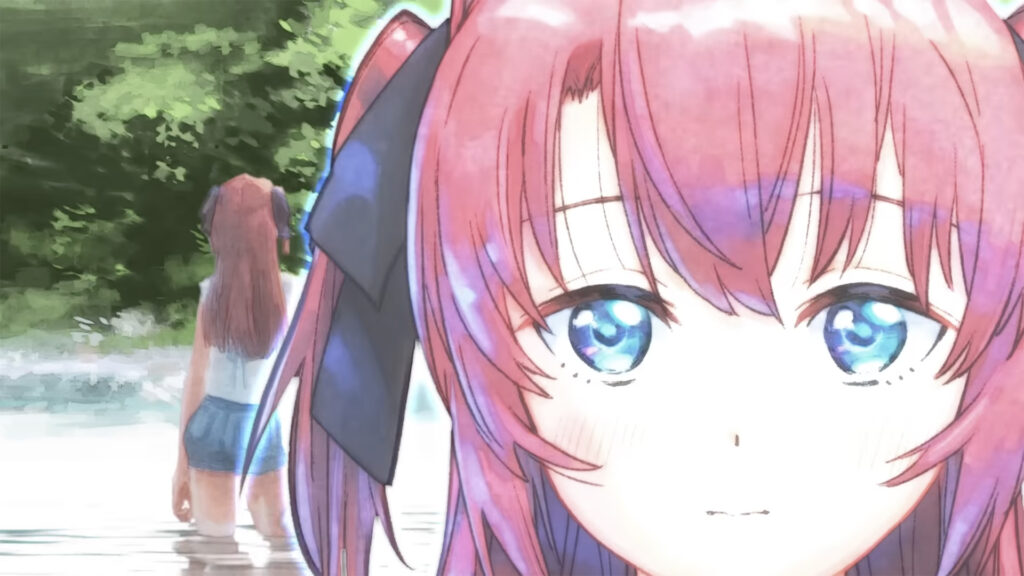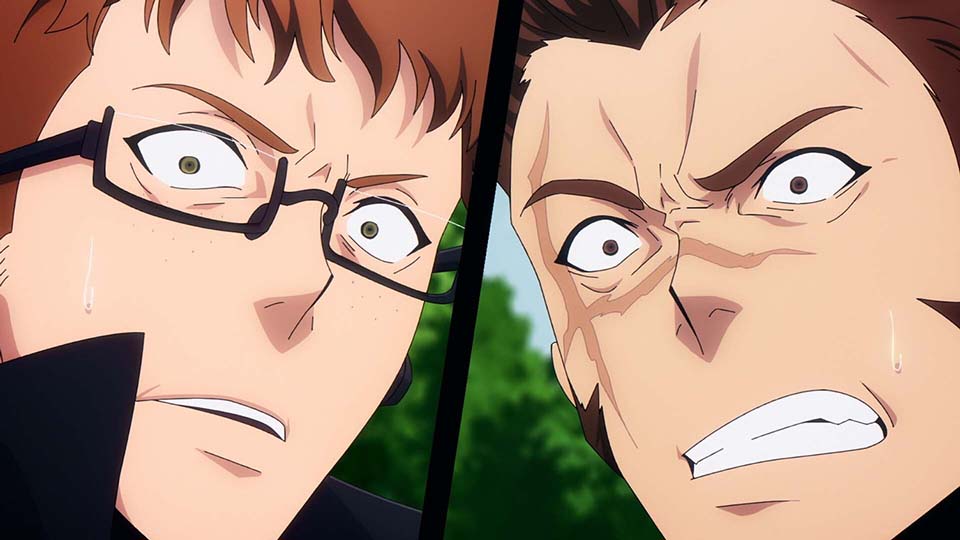Kaiju No. 8 was an unexpected anime-watching experience for me. Initially, I thought it’d be an uber-serious story about a guy using his newfound Kaiju abilities to wage war on the very thing he had become. That’s not to say the anime doesn’t have its serious moments, but when you tell me the protagonist becomes the very thing he wants to destroy, I expect an angry, bitter fighter who swears on his deceased loved one’s grave that he’ll kill every last Kaiju in existence. Kafka Hibino is not that guy, which is what makes Kaiju No. 8 such a special entry in the ever-growing library of shonen anime. It’s no surprise that it’s up for Anime of the Year at the 2025 Anime Awards . RELATED: Crunchyroll Anime Awards 2025: Your Ultimate Guide In a world where Kaiju can interrupt your morning commute, the job held in the highest regard is the Anti-Kaiju Defense Force. These brave fighters face the Kaiju threat head-on, protecting everyday citizens from the destruction they cause. Kafka has wanted to be part of the team since he was a kid, having made a promise to his childhood friend, Mina Ashiro, that they’d destroy the Kaiju menace together. However, we learn that Mina has become the Captain of the Third Division while Kafka? Well, after failing the test to become part of the Defense Force (multiple times), he’s part of the cleanup crew that shows up at the end of battle to get rid of the smelly bits that make newbies want to vomit. RELATED: Which Kaiju No. 8 Character Are You Most Like? After so much failure, you’d think the 32-year-old Kafka would be relegated to the role of mentor, especially since the aspiring Defense Force applicants around him are younger (Reno Ishikawa and, later, Kikoru Shinomiya). The series even seems to head in that direction since Kafka ends up showing Reno the ins and outs of cleaning Kaiju innards. But the heart wants what the heart wants, so Kafka sets his sights on one last attempt before he reaches the applicant cut-off age of 33… after a very strange encounter that leads to him becoming a Kaiju. Kafka doesn’t respond with anger; he responds with an, admittedly, comical level of fear. He can now crush buildings without even trying and he can punch Kaiju so hard that it rains blood. And don’t get me started on how he uses the bathroom as a Kaiju. Surely, that means he’ll have a moment of self-loathing before setting off on his own to eradicate all the Kaiju, right? He’s got an incredible advantage, after all. Surprisingly, Kafka decides to move forward with his original plan of attempting to join the Defense Force while trying to figure out how to smile without traumatizing children with his new Kaiju features. RELATED: Kaiju No. 8 English Dub Cast on How the Series Encourages Older Anime Fans The fact that Kafka’s still able to maintain his silliness after such a distressing plot twist adds a sense of humanity to what could be grim circumstances. But honestly? That’s kinda what you learn how to do when you’re in your thirties. One of the commentaries I’ve seen about Kaiju No. 8 is how refreshing it is to have a 30-something-year-old protagonist be the hero . I’ve even praised the series for letting the adult of the group be more than the advice-giver to the younger generation. Adults have dreams, too, and they should very much be portrayed as being able to try for and achieve their goals. But then Senior Contributing Writer Tony Cocking wrote about Kafka , and something he said stuck with me. “We do not meet Kafka at an enviable time of his life. He just kind of exists, really, having pivoted into the inglorious job of Kaiju body disposal. It’s an important role that keeps the city clean and provides for the companies bidding on the resources they collect, but there’s no parade for Kafka and his colleagues. Despite all this, Kafka maintains his good nature. He’s a diligent and valued employee eager to train new recruits, not letting his beaten down demeanor ever surface in the public eye. It’s not until he returns home that we see exactly who he is; he’s just some guy, surrounded by empty takeout boxes and empty dreams.” This made me realize how worthwhile Kaiju No. 8 really is. Kafka is a 32-year-old guy who just… exists. He could be any 30-something out there who’s going through the motions because things didn’t work out the way he planned. Kafka wasn’t able to join the Defense Force, but he did find something he could do. Even if it wasn’t the job he wanted, he still treated it with respect. Whether he realizes it or not, this mentality is what prepared him for what lies ahead, namely, becoming a Kaiju and finally joining the Defense Force. Speaking as someone in her forties, I can tell you that this is a frustrating thing to learn, but it does give you a sort of wisdom that’s hard to explain. Kafka, on the surface, may not be as notable as Mina or have as much potential as Kikoru, but he makes up for it with his life experience. When he becomes a Kaiju, for example, he doesn’t let that stop him. He literally does not change his original plan, he simply adjusts them the best he can. At this point in his life, he’s used to failure, so this is just another hurdle to add to the list of hurdles he’s had in his way. It’s basically how being an adult works. When things don’t go your way, you pivot. RELATED: Kaiju No. 8’s Kafka Hibino is the Hero We 30-Somethings Deserve We see this again when Kafka’s around his peers in the Defense Force, who tend to be younger and do better than him. Instead of being mad or giving up, Kafka’s inspired by his teammates. This could’ve been a point of contention for him; after all, a prodigy like Kikoru was born in an entirely different decade than Kafka. However, Kafka shows us that we can learn from our younger peers and work with them instead of battling against them. As Tony quotes from Kafka, “Chasing your dreams means there’s always someone out there who’s beating you at the thing you care about most… but it’s also so exciting that you don’t really care!” This isn’t the first time an anime series has tackled these kinds of messages, but having someone Kafka’s age be the one to deliver them adds some extra weight to the message. It’s not just because he keeps going at 30, it’s that him being 30 is a benefit throughout the story because it’s taught him how to adjust to his circumstances. As someone who’s used to seeing people treat 30 like the end of days, I very much appreciate series like Kaiju No. 8 treating Kafka like an inspiration and not a setback.


